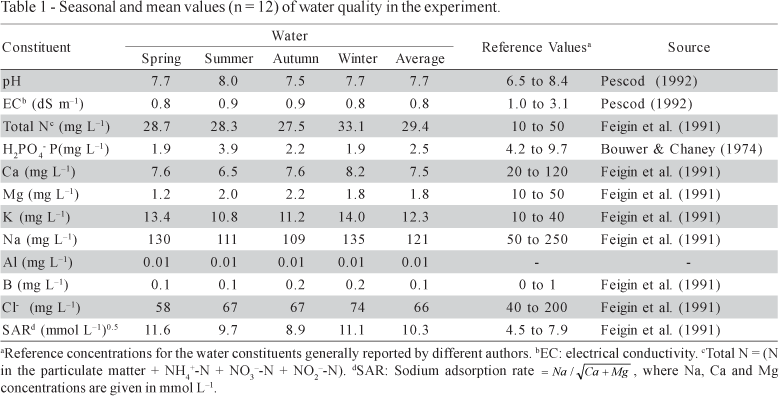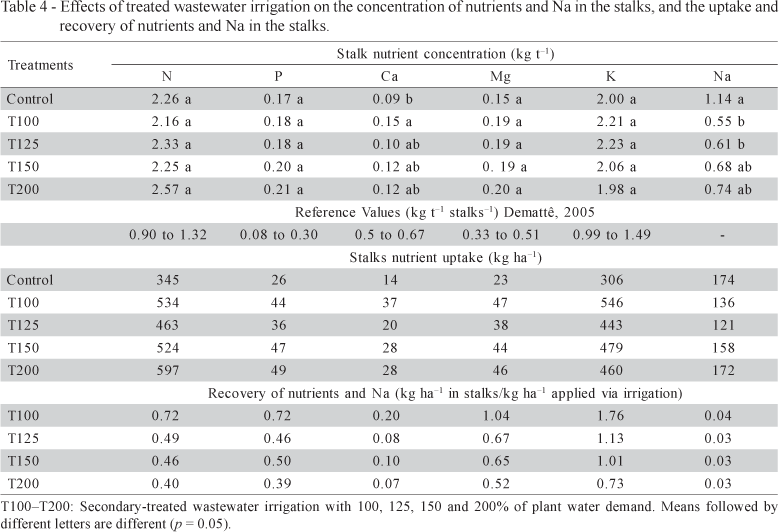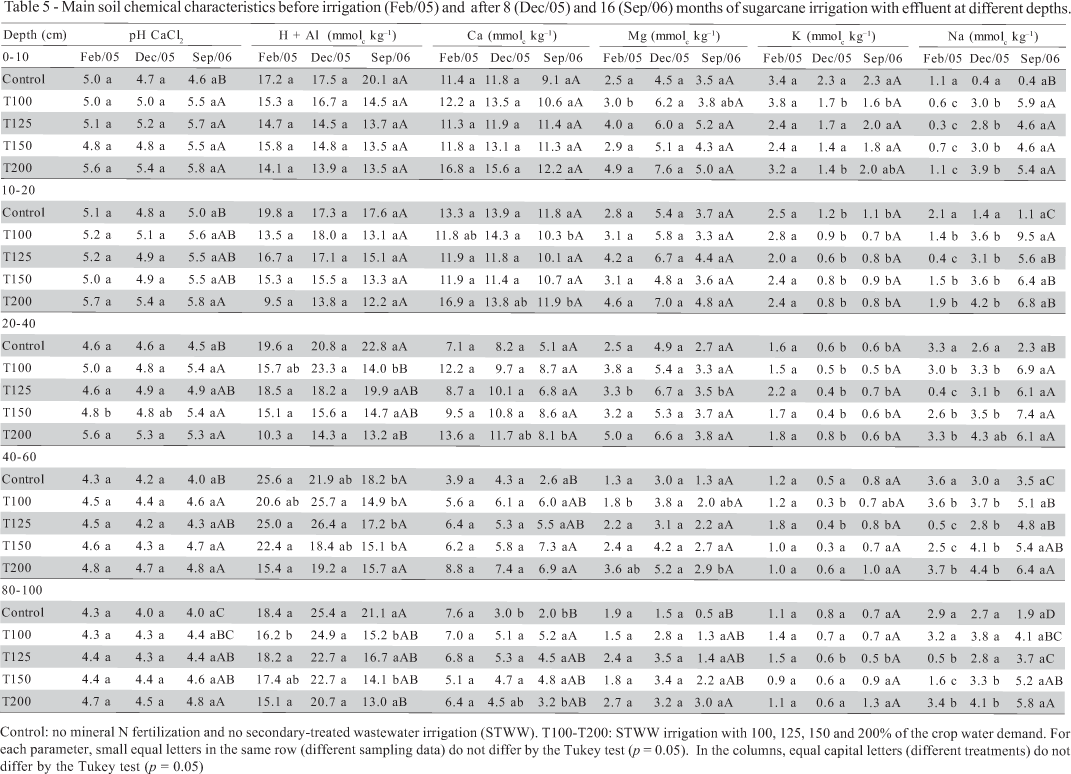Wastewater irrigation may benefit agricultural crops with water and essential nutrients (mainly nitrogen), also affecting soil chemistry. The effects of effluent irrigation on yield, stalk nutrient uptake and on soil chemistry over 16 months were studied in a sugarcane (Saccharum spp.) crop growing on an Oxisol in Lins, State of São Paulo, Brazil. Irrigated plots received 50% of the recommended mineral-N fertilization and 100, 125, 150 or 200% of the crop water demand, while control plots received neither additional N nor water. The high sodium content of effluent resulted in Na inputs as high as 6.2 t ha-1, along with 1497 kg N ha-1 and 628 kg K ha-1. All the effluent plots except the T125 treatment had higher yields (up to 247 t ha-1) than the control (153 t ha-1). Significant amounts of N (up to 597 kg ha-1) and K (up to 546 kg ha-1) were exported by the plant harvest. Additions of nutrients and Na via irrigation were not compensated by stalk growth, causing a low recovery of N, P, Ca, Na, and showing the relative over N fertilization of the crop. Changes in soil pH, H + Al, Ca, Mg and K were small, whereas Na accumulated over time with irrigation. The treated wastewater irrigation is expected to gain increased importance, requiring careful considerations involving the adequate balance between nutritional inputs via irrigation and optimal plant productivity requirements.
Saccharum spp.; water reuse; land disposal; nutrient cycling






